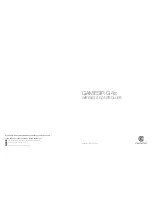
L-VIS User Manual
187
LOYTEC
Version 6.2
LOYTEC electronics GmbH
Daily
: This event occurs every day, starting at a given date and ending at a given
date.
Weekly
: This event occurs every week on the specified weekday.
Monthly
: This event occurs every month following a date range or a defined rule
(e.g. every last Friday).
Yearly
: This event occurs every year following a date range or a specific day
every year.
Default
: This is a special event. The selected preset value will be in effect 00:00
to 24:00 hours every day if no other event occurs.
Calendar
: For some tasks the regular recurrence such as on weekdays is not
sufficient. This can be implemented by defining events based on a
calendar
. For
instance, there may be a calendar for holidays. The calendar contains a number of
calendar patterns
. Each calendar pattern describes a pattern of dates on which an
event shall occur, e.g.,
Holidays
.
One can define a set of scheduled events that are recurring differently. For example one
event is defined for regular workdays (Monday through Friday). Another event is defined
based on the holidays calendar pattern. This will lead to overlapping events between
workday and holiday for those weekdays, which are holidays.
The resolution of this overlap is simple: Each event is configured with a
priority
. Should an
overlap occur, the event with the higher priority will be in effect (e.g., Dec 25
th
in Holidays
overrides the regular workday event). An example is shown in Figure 7. The detailed view
shows the two overlapping events and the preview shows the effective schedule. Note, if
two events with the same priority exist, it is not defined, which one is in effect. Therefore,
always use distinct priorities.
Priorities are numbers, but some priorities have been pre-assigned, e.g. highest, override,
normal, low. Please also refer to the technology-specific limitations described in Section
10.10 to learn about special behavior of the respective networking technology.
Figure 7: Example with overlapping events and different priorities.
The configuration of calendar-based recurrence is done by calendar patterns in the calendar.
Each calendar pattern contains a number of pattern entries. These entries can define the
following:
A single date: This defines a single date. Wildcards may be used in the year to
specify Dec 25
th
of every year.
















































